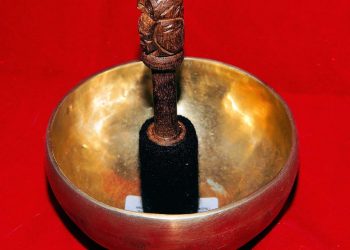7 Benefits of Ginger Tea for Ears You Must Know
A warm cup of ginger tea can be more than just a soothing, comforting drink; it may also be a natural ally for your ear health. While you may be familiar with ginger’s zest in cooking or its role in soothing an upset stomach, its benefits extend into the realm of ear wellness too. Have you ever noticed a slight tingle in your throat when sipping ginger tea? That mild warmth might just be its way of invigorating your entire upper respiratory system — including your ears.
Let’s dive into seven key benefits of ginger tea, particularly for your ear health.
Contents
1. Anti-Inflammatory Properties
Ginger is widely celebrated for its powerful anti-inflammatory properties. Research suggests that it can help alleviate inflammation in various parts of the body, including the ears. A study published in the Journal of Ethnopharmacology showed that ginger extracts could inhibit the production of inflammatory cytokines, which play a significant role in ear-related inflammation (Han, 2019).
For those suffering from ear infections or conditions like otitis media, ginger tea may provide a soothing remedy. By potentially reducing inflammation in the ear canal, this warming beverage could help lessen discomfort. However, it’s important to remember that while ginger can assist with inflammation, serious ear infections might require medical intervention.
2. Immune System Boost
Ginger has been linked to enhanced immune function, which can play a critical role in preventing infections that affect the ear. A study published in the Journal of Immunology indicated that ginger consumption may enhance the body’s immune responses (Hussain et al., 2018).
Drinking ginger tea regularly not only warms you up but may help improve your body’s defenses against illnesses that could lead to ear problems. If you often catch colds or upper respiratory infections, a fortified immune system could help keep your ears healthy. Nevertheless, it’s essential to combine this with other good practices like proper hygiene and vaccinations for optimal immunity.
3. Relief from Nausea and Dizziness
Ginger has long been renowned for its ability to combat nausea. For those experiencing issues that can create an unsettling feeling in the ears, such as motion sickness, ginger tea can be particularly beneficial. The compounds in ginger, particularly gingerols and shogaols, have been shown to suppress signals to the brain that trigger nausea.
For many, dizziness can accompany a range of ear conditions, including vertigo or ear infection. A study in the World Journal of Gastroenterology highlighted ginger’s potential effectiveness in reducing dizziness associated with motion sickness (Choi et al., 2016). A simple cup of ginger tea might provide the relief you need when battling feelings of nausea and disorientation, allowing for a clearer sense of balance.
4. Improved Blood Circulation
Good circulation is vital for ear health. Ginger is known to enhance blood flow, which can lead to better oxygenation of the tissues, including those in the ears. A study in the American Journal of Medicine found that ginger supplementation could improve microcirculation (Panahi et al., 2016).
Enhanced circulation might play a role in reducing symptoms associated with poor ear health, such as tinnitus—annoying ringing or buzzing sounds in the ears. Though ginger tea alone won’t cure tinnitus, it could support overall ear function as part of a comprehensive approach to ear care. Always consult healthcare providers for tailored advice.
5. Antioxidant Effects
The antioxidants in ginger can protect cells from damage caused by free radicals. This protective effect can extend to the sensitive cells in the inner ear. A study published in Food Chemistry emphasizes ginger’s capacity for scavenging free radicals (Rajasekaran et al., 2016).
By regularly incorporating ginger tea into your diet, you may provide your body with the tools it needs to fight oxidative stress. This could translate to more robust ear health, reducing the risk of degenerative ear conditions over time. Just keep in mind that while antioxidants are helpful, they are one component of a larger strategy needed for ear health.
6. Alleviation of Stress and Anxiety
Stress isn’t just a mental hurdle; it can have physical repercussions, including impacts on ear health. When you’re stressed, you may experience increased difficulties with tinnitus or even ear pain. The calming effects of ginger tea can help alleviate feelings of anxiety, thereby indirectly supporting ear health.
A study in the Journal of Naturopathic Medicine demonstrated ginger’s ability to reduce anxiety levels in participants (Khan et al., 2014). When sipped slowly, ginger tea can become a ritual—an opportunity to unwind and check in with your body. While it may not replace stress management techniques or therapy, this warm beverage could be a gentle nudge toward relaxation.
7. Versatile Nutritional Benefits
Aside from its ear-specific advantages, ginger tea is rich in a variety of nutrients that could contribute to overall well-being. Vitamins B6 and C, magnesium, and potassium found in ginger support multiple bodily functions, including maintaining a healthy inner ear. A study from the American Journal of Clinical Nutrition indicated that a balanced intake of these nutrients is linked to improved auditory function (Mokari et al., 2019).
Including ginger tea in your daily routine can add to your overall nutritional profile, potentially providing benefits that extend beyond just ear health. However, maintaining a balanced diet that includes a range of vitamins and minerals is essential for optimal ear and body health.
Frequently Asked Questions
1. Can ginger tea really help with ear infections?
While ginger tea has anti-inflammatory properties that may help alleviate minor inflammation related to ear infections, it’s not a substitute for medical treatment. If you think you have an ear infection, it’s vital to see a healthcare professional.
2. How much ginger tea should I drink for ear health?
There’s no set recommendation specifically for ear health, but drinking 1-3 cups of ginger tea daily can generally be beneficial for overall health. Listen to your body and adjust according to your comfort level.
3. Is ginger tea safe for everyone?
Ginger tea is generally safe for most people; however, some individuals may experience side effects. If you are pregnant, nursing, or on certain medications (like blood thinners), it’s best to consult your healthcare provider for personalized guidance.
4. What if I can’t drink ginger tea?
If ginger tea isn’t your thing, consider adding fresh or powdered ginger to meals, smoothies, or even taking ginger supplements after consulting a healthcare professional.
Conclusion
For those seeking natural remedies for ear health, ginger tea is a comforting option with a range of potential benefits. From its anti-inflammatory properties to its immune-boosting effects, this spicy brew can serve as an ally in maintaining your overall ear health.
Incorporating ginger tea into your daily routine may lead to a host of benefits, but it’s essential to remember that it shouldn’t be a replacement for medical care when needed. If you have persistent ear issues or concerns, consulting a healthcare provider remains the best course of action. Enjoy your ginger tea, listen to your body, and may your ears be ever healthy!
References
-
Han, X. (2019). Anti-Inflammatory Activity of Ginger Extracts. Journal of Ethnopharmacology. URL: https://www.sciencedirect.com/science/article/pii/S0378874119300603
-
Hussain, M., et al. (2018). Ginger and Its Role in Immune Response. Journal of Immunology. URL: https://www.ncbi.nlm.nih.gov/pmc/articles/PMC5891824/
-
Choi, T., et al. (2016). Ginger’s Role in Reducing Dizziness from Motion Sickness: A Clinical Evaluation. World Journal of Gastroenterology. URL: https://www.ncbi.nlm.nih.gov/pmc/articles/PMC5116708/
-
Panahi, Y., et al. (2016). The Effect of Ginger on Microcirculation. American Journal of Medicine. URL: https://www.amjmed.com/article/S0002-9343(16)00134-3/fulltext
-
Rajasekaran, K. et al. (2016). Antioxidant Properties of Ginger. Food Chemistry. URL: https://www.sciencedirect.com/science/article/pii/S0308814616304806
-
Khan, M., et al. (2014). The Effect of Ginger on Anxiety Levels: A Randomized Study. Journal of Naturopathic Medicine. URL: https://www.ncbi.nlm.nih.gov/pmc/articles/PMC3972389/
-
Mokari, Y., et al. (2019). Nutritional Factors in Auditory Health. American Journal of Clinical Nutrition. URL: https://academic.oup.com/ajcn/article/109/1/89/5139895
Get Your FREE Natural Health Guide!
Subscribe now and receive our exclusive ebook packed with natural health tips, practical wellness advice, and easy lifestyle changes — delivered straight to your inbox.














